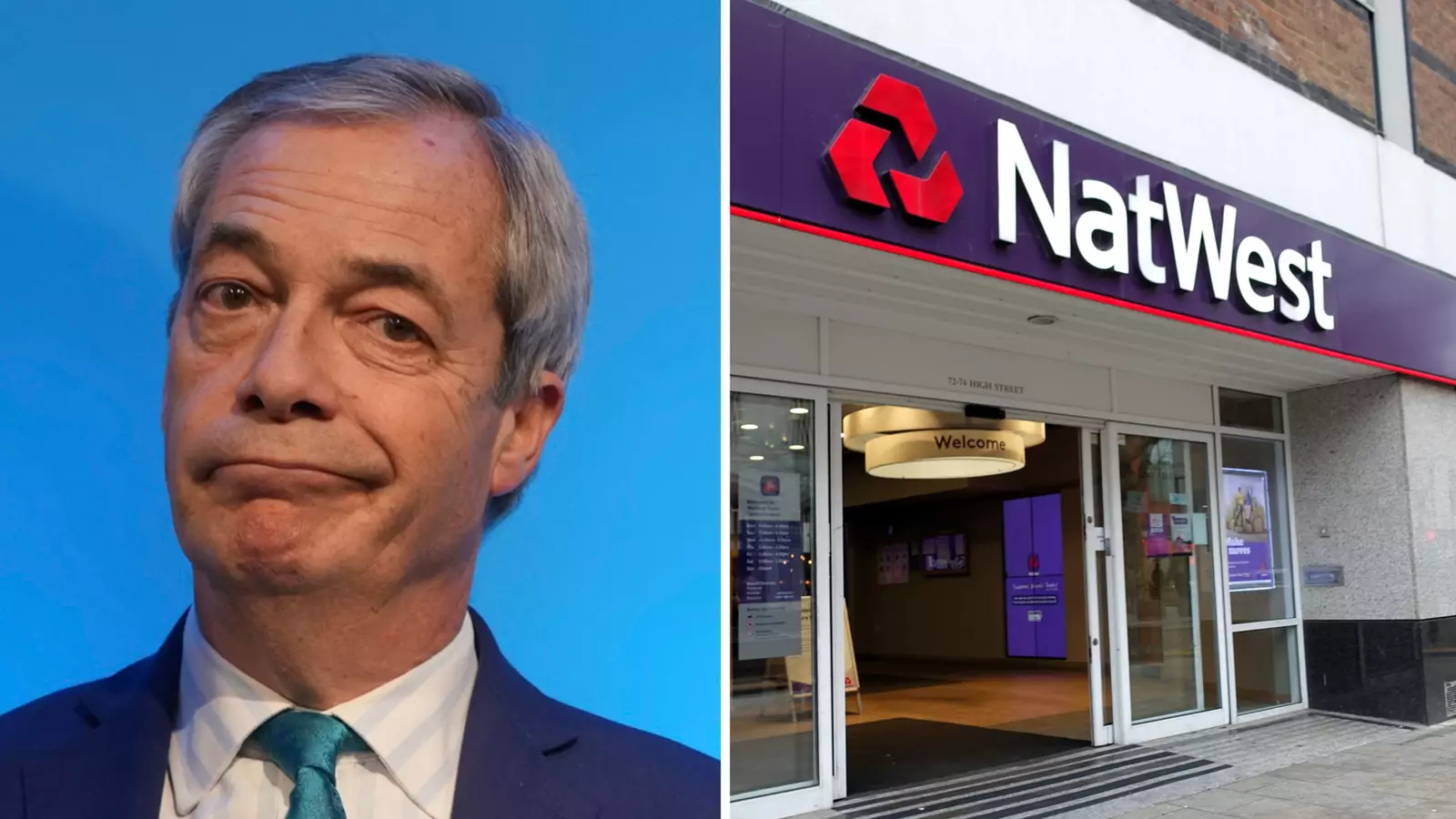The recent debanking scandal involving Nigel Farage and NatWest Group has attracted significant media attention and public scrutiny. Farage, the leader of Reform UK, is contemplating private criminal proceedings against the banking giant in light of the controversy that led to the resignation of Dame Alison Rose, the bank’s former chief executive. This article seeks to dissect the various elements of this developing narrative, considering the ramifications for both Farage and NatWest while discussing broader implications in the political and financial sectors.
At the heart of this issue lies the contentious nature of political influence in banking. Farage’s accounts were closed under circumstances that he alleges were steeped in political motivations, a claim that has sparked widespread debate about fairness in banking practices for politically exposed persons (PEPs). The unfolding saga illuminates the ethical dilemmas banks may face when navigating their commercial activities alongside the political landscape. The fact that NatWest initially claimed the closure was motivated by commercial reasons, only to later yield internal evidence that suggested political motivation, raises questions about transparency and accountability within the banking sector.
This situation prompted intervention from the highest levels of government, with Prime Minister Rishi Sunak and Chancellor Jeremy Hunt expressing their loss of confidence in Dame Alison’s leadership. Such involvement underscores a concerning intersection between politics and finance, where banking decisions may be entangled in political affiliations, which could set a precarious precedent for how banks operate in the future.
Farage’s move to hire criminal counsel to investigate potential criminal wrongdoing by NatWest is particularly noteworthy. This approach signifies a push for accountability in the financial sector, aligning with a growing sentiment that banks should be more responsible not just to their shareholders but also to the communities and individuals they serve. Chris Daw KC’s exploration into the possibility of a private criminal prosecution signals a more aggressive stance from Farage, showcasing his determination to seek justice in what he perceives as a grave infringement on his rights.
Additionally, this legal venture raises questions about the viability of using private prosecutions as a mechanism to hold large organizations accountable. While such actions could serve as a check on power, they also reveal the complexities involved when an individual takes on corporate giants, especially in a landscape where legal resources and influence can be significantly imbalanced.
For NatWest, navigating this climate of scrutiny poses considerable challenges despite its improved financial health. With its government stake decreasing and a potential full exit looming, the bank faces a crucial period where public relations, regulatory compliance, and operational integrity must be handled with utmost care. The internal investigations and the rise of anti-establishment sentiments, particularly led by figures like Farage, can lead to lasting reputational damage that outweighs any short-term financial advantages.
Furthermore, this scenario could invoke changes within the financial regulatory framework. With the City watchdog directing firms to reassess how they treat public figures, this incident could catalyze a shift toward greater protections for PEPs, addressing concerns about discrimination based on political beliefs or affiliations. This may also inspire other politicians and public servants to scrutinize their banking relationships, creating an atmosphere of wariness between the financial industry and political communities.
Farage’s rising influence cannot be overlooked, as evidenced by recent polling that places his party ahead of established political entities like Labour and the Conservatives. His strong ties to U.S. politics, especially with figures such as Donald Trump, amplify concerns over his role in shaping Britain’s political climate leading up to the next general election in 2029. If he effectively leverages this controversy to galvanize public support and highlight perceived injustices, it could shift the balance of power within the UK political landscape.
This controversy encapsulates a broader debate about accountability, the intersection of finance and politics, and the role of individual actors against institutional giants. As Farage seeks to carve out a narrative of victimization and resilience, only time will tell how this influential saga unfolds and what it portends for the future of both NatWest and Reform UK.



Leave a Reply